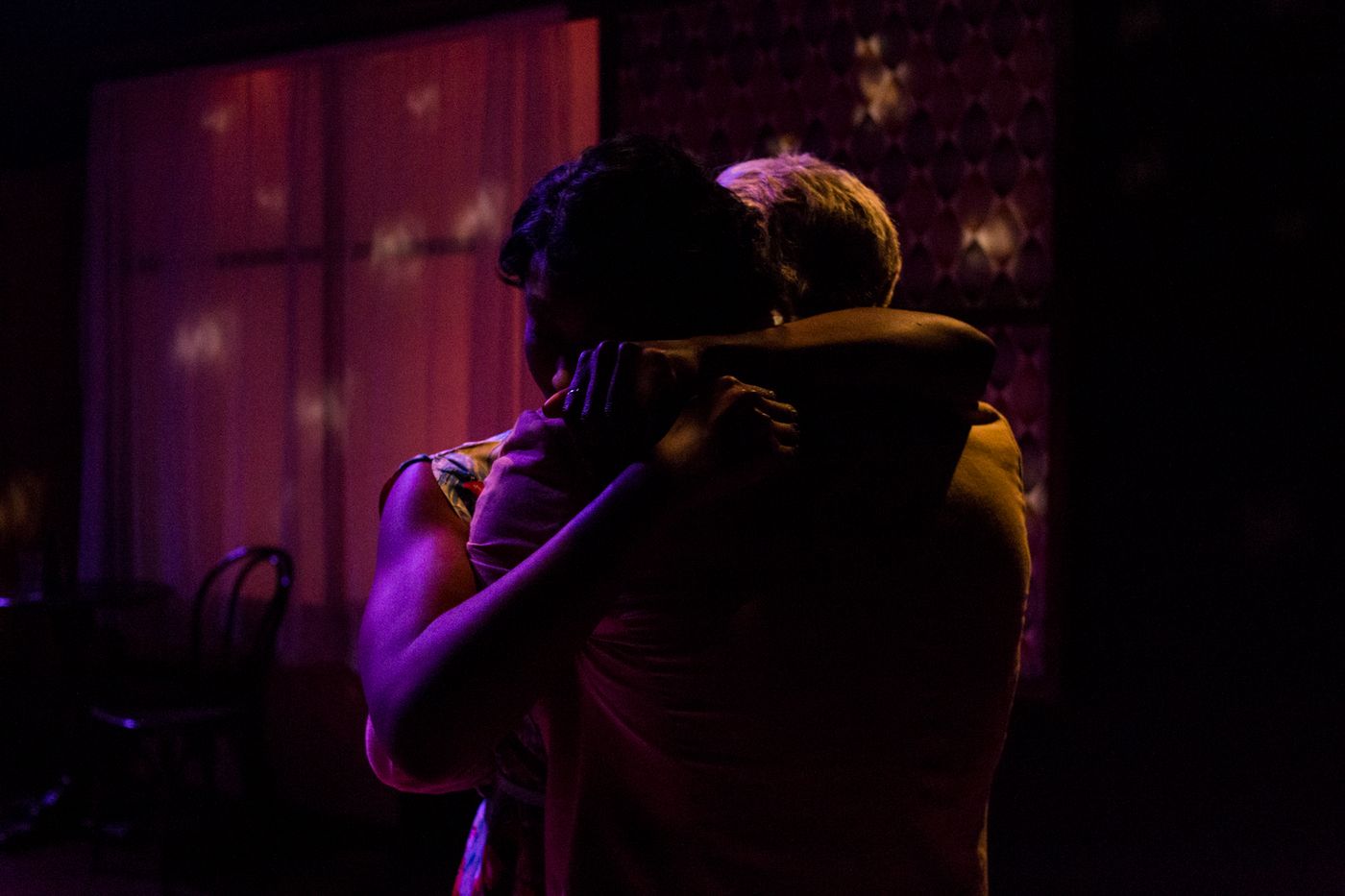Review: MAD AS HELL, Jermyn Street Theatre

![]() Peter Finch and Eletha Barrett's relationships scandalised Hollywood and lead the actor to an Academy Award-winning performance in the 1976 film Network. Written by Cassie McFarlane and Adrian Hope, Mad as Hell is a brash and provocative piece of theatre.
Peter Finch and Eletha Barrett's relationships scandalised Hollywood and lead the actor to an Academy Award-winning performance in the 1976 film Network. Written by Cassie McFarlane and Adrian Hope, Mad as Hell is a brash and provocative piece of theatre.
After meeting in Jamaica in the 60s, Finch and Barrett were indivisible until his sudden death in 1977. The play shows pieces of their messy life in a mix of fantasy and reality, from a heartbroken Eletha after he didn't show up to their date, to her Oscar speech, which was turned upside down by the playwrights.
"Finchy", what everyone used to call him, couldn't be better cast: Stephen Hogan brings the rage and tiredness of a man who's drowning in alcohol and whose life is ridden by scandal. His vicious circle of using the women who try exploit him in the attempt to rise to fame (like Debbie, played by Alexandra Mardell) is broken by Eletha, played by Vanessa Donovan.
Hogan shines in the role. His physicality and mannerism are eerily similar to the movie star's, and, just like Finch, his portrayal is compellingly tormented. His performance of the womanising actor culminates with a delivery Network's reinvented speech, packed with obsession and exasperation.
In turn, Donovan's Eletha is confident and outspoken. With their marriage cementing their status as a couple, she establishes a liaison of vehement blackmailing with the world (and with her husband, at times). She is insolent in her forceful attempt to get validated from Hollywood's society.
With her character, internalised racism and elitism emerge from Hope and McFarlane's story. Finch's Hollywood peers' discomfort with their union doesn't have major effects on Eletha: "We know them, they don't know us"; but the judgement of her own people does: "We might not be high class, but we're good people".
Directed by McFarlane, the scenes are quick and almost cinematic. The script doesn't linger on the spaces and moments it portrays, so the director creates a dynamic tempo that, however, leads to rather long and uninspiring blackouts where the props are shuffled around.
Erika Rodriguez doesn't over-crowd the set, mainly using a table topped with bottles and two chairs throughout the whole show. Helped by sound designer David Beckham and lighten designer Tim Mascall, they sprinkle a 60/70s vibe with music and lightplay, grounding the piece in its time.
Beckham's diegetic sounds almost have a featuring role and they become the source of tension between the couple. Martin Luther King's death heard through a small radio instills Flinch with fear and makes him even more reticent to take Eletha to the United States; when she hears Bob Marley playing, she goes on a tirade on how in her opinion Rastafarians bring shame upon Jamaicans.
With this last instance, McFarlane and Hope aren't afraid to reveal how problematic they are, especially when it comes to racial issues. Their turn of phrase is raw, condemning the topics from an angle and letting the audience connect the dots.
Mad as Hell becomes more than a tribute to a trail-blazing (and hell-raising) couple. It's the chance to highlight strength and courage in the face of racial prejudice, and it's a celebration of a woman who took it on the chin and imperiously faced Hollywood.
Mad as Hell runs at Jermyn Street Theatre until 24 February.
Photo credit: Eddie Otchere
Reader Reviews
Videos

